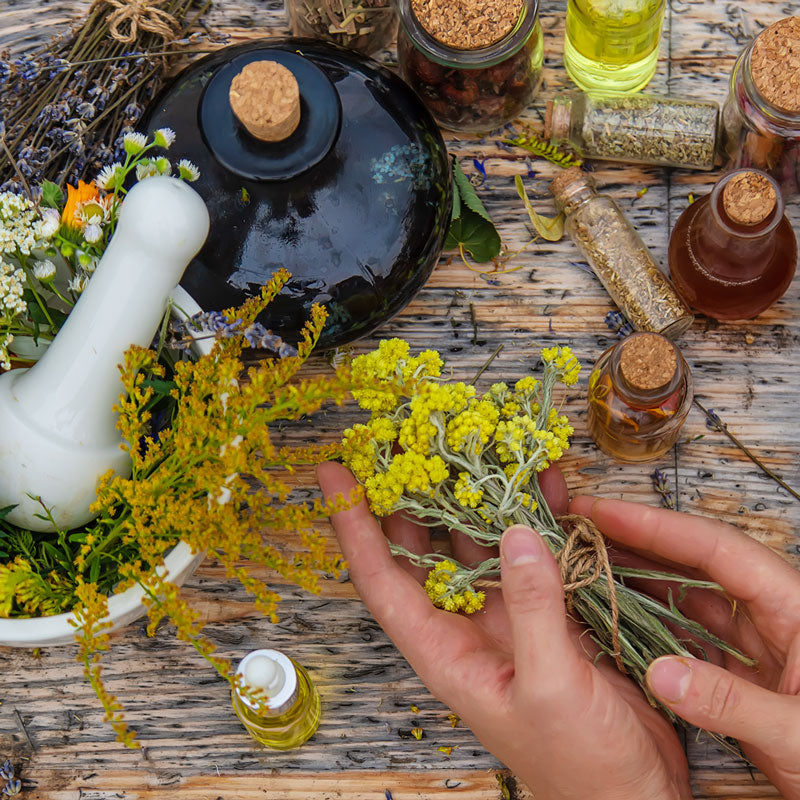The Timeless Ingredients of Egyptian Herbalism

Egyptian herbalism, dating back thousands of years, has left an indelible mark on the practices of modern herbalists and naturopaths. From the aromatic corridors of pharaoh's palaces to today's wellness trends, several ingredients have stood the test of time. We use food grade ethanol to extract the beneficial properties of many of these ingredients in the modern day. This blog will delve into the history of these vital ingredients, their unique properties, and their influence on contemporary herbalism.
Garlic (Allium sativum)
Garlic has been a prominent healing agent since ancient Egyptian times. Its pungent aroma and potent antibacterial properties made it a common remedy for various ailments, including infections, digestive issues, and heart conditions. Even today, garlic is widely used in naturopathy and has been the subject of numerous scientific studies.
Frankincense (Boswellia sacra)
The use of frankincense in Egyptian society is well-documented. Its warm, spicy aroma and therapeutic properties made it a coveted item in religious rituals, cosmetics, and medicine. Today, it is lauded for its anti-inflammatory properties and is frequently used in aromatherapy and skincare.
Aloe Vera (Aloe barbadensis miller)
The Egyptians dubbed aloe vera the "plant of immortality." Renowned for its soothing and healing properties, it was commonly used to treat burns, wounds, and skin diseases. Aloe vera remains a staple in modern skincare products, and its internal use for digestive health is gaining popularity.
Black Cumin (Nigella sativa)
Also known as 'black seed', this was a favored ingredient in Egyptian herbalism. Its oil was reportedly found in the tomb of Pharaoh Tutankhamun, highlighting its importance. This seed, with its slightly bitter, peppery flavor, is known for its antioxidant, anti-inflammatory, and antimicrobial properties. Today, it's often used in immunity-boosting herbal formulations.
Onion (Allium cepa)
Onions were an integral part of the ancient Egyptian diet and were also utilized for their therapeutic benefits. Rich in vitamins and minerals, they were used for treating a variety of health issues, from heart ailments to infections. Contemporary research supports many of these traditional uses, particularly for cardiovascular health.

These ingredients embody the wisdom of Egyptian herbalism, influencing modern practices significantly. They serve as a testament to the enduring power of natural remedies and the timeless relevance of Egyptian herbalism.
It's fascinating to witness how these ancient ingredients have seamlessly integrated into modern naturopathy. They serve as a bridge between the past and the present, reminding us of the timeless wisdom inherent in nature.








